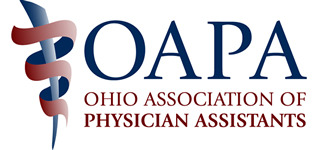Complete Story
08/04/2025
"Next Stop: Clinical Practice" Recap & Takeaways
On August 2, 2025, aspiring PAs across Ohio logged on for an insight-packed morning during Next Stop: Clinical Practice, a live virtual Q&A hosted by the Ohio Association of Physician Assistants.
Aimed at current PA students and recent grads, the event delivered exactly what it promised: real-world advice, practical tools, and encouragement from those who’ve already made the leap from classroom to clinic.
Whether you’re still navigating rotations or preparing to sign your first contract, this event was a goldmine of career-shaping wisdom.
A Panel of PA Powerhouses
Featuring a standout lineup of experienced PA leaders, the panel represented a wide swath of clinical experience and regional perspectives. Moderated by OAPA Board leaders Anu Mathur, MS, PA-C and Emily Brown, MPAS, PA-C, attendees heard directly from:
-
Lindsay Galchick, MSPAS, PA-C – Cincinnati Children’s
-
Andrew Baker, MBA, PA-C – DOCS Dermatology
-
Kelly Stiffler, PA-C – Dayton Children’s
-
Emily Keller, DMS, PA-C – OhioHealth
-
Alex Cook, MPAS, PA-C – US Acute Care Solutions
-
Kara Frey, MSPAS, PA-C, ATC – Cincinnati Children's
With authenticity and warmth, panelists shared personal stories, professional missteps, and proven strategies for thriving in the early years of PA practice.
A Candid Conversation
In advance of the meeting, students and new grads submitted thoughtful questions on everything from PANCE prep to interview etiquette. Discussion included:
-
How to stand out when applying for your first job
-
Taking advantage of every opportunity you have
-
Finding a professional support system
-
Staying agile and making the most of your time while you wait for a role
-
The value of staying connected to professional organizations like OAPA
Throughout, panelists emphasized the importance of flexibility, lifelong learning, and self-advocacy, especially in the face of a rapidly changing healthcare landscape.
If You Missed It…
This wasn’t just another Zoom call, it was a launching pad. Next Stop: Clinical Practice created a unique space for future PAs to feel supported and set up for success. For many attendees, it may have been the first time they heard such honest, practical guidance from seasoned professionals who truly remember what it's like to be starting out.
If you weren’t able to join, don’t worry! OAPA is already planning future events and resources tailored specifically to PA students and recent grads. In the meantime, keep an eye on the OAPA website for upcoming opportunities.
Top 5 Takeaways from the Event
1. Start Early, But Don’t Rush
If your goal is to start work right after graduation, begin your job search early, but don’t feel pressured to take the PANCE before you’re truly ready. Some organizations hire students contingent on passing the exam, while others won’t. Know your own timeline and balance preparation with practicality. And be aware: there’s often a gap between graduation and your first official day as a PA due to credentialing and licensing delays. Use that downtime wisely!
2. Treat Every Interaction Like a Job Interview
Your clinical rotations, emails, and networking efforts are all part of your professional brand. Treat every rotation, shadowing opportunity, or other clinical experience like an audition. Build relationships in the geographic area you hope to work, and don’t underestimate the power of word of mouth. Some jobs never make it to public listings! When applying, make your resume targeted and specific, and always include a cover letter to show who you are and why you’re invested in that job.
3. Be Strategic and Proactive in the Job Search
Don’t just apply to jobs passively, work the system. Look at NP postings in addition to PA roles (some employers may not have considered hiring a PA yet), and try to find a real human contact inside the organization to champion your application. During interviews, be curious and ask insightful questions (turnover, onboarding, team dynamics). Show you’re eager and serious, not just looking for a stepping stone.
4. Prioritize Growth and Learning
When you're just starting out, consider pursuing the position that will teach you the most, not necessarily the one that will pay you the most. Whether it's a fellowship, medical mission, or extra CME, lean into opportunities that build your clinical confidence and broaden your skillset. The more you see and do early on, the faster you'll grow. You'll make mistakes as a new PA, but the more you can learn and the stronger your relationships are with your healthcare team colleagues, the faster you will grow into your career.
5. Own Your Career—Start Now
You are your own best advocate. That means organizing your credentialing documents, knowing what’s required (licenses, verifications, training, insurance, etc.), and staying on top of deadlines and costs. Keep good records, line up reliable references, and be ready for the expenses that come along with preliminary licensing and trainings. Your professionalism, preparedness, and follow-through will set you apart, and make it easier for employers to say “you are hired!”
Final Thoughts
Whether you’re preparing to graduate, stressing over job offers, or simply wondering what life is like after PA school, one thing’s clear: you don’t have to figure it all out alone. Events like Next Stop: Clinical Practice remind us that the PA profession is built on collaboration, mentorship, and mutual support, and that is what OAPA is here to provide.
Wherever you are on your journey, let OAPA be part of your next step. Learn more about membership levels and benefits and reach out anytime to oapa@ohiopa.com with questions or for support!

